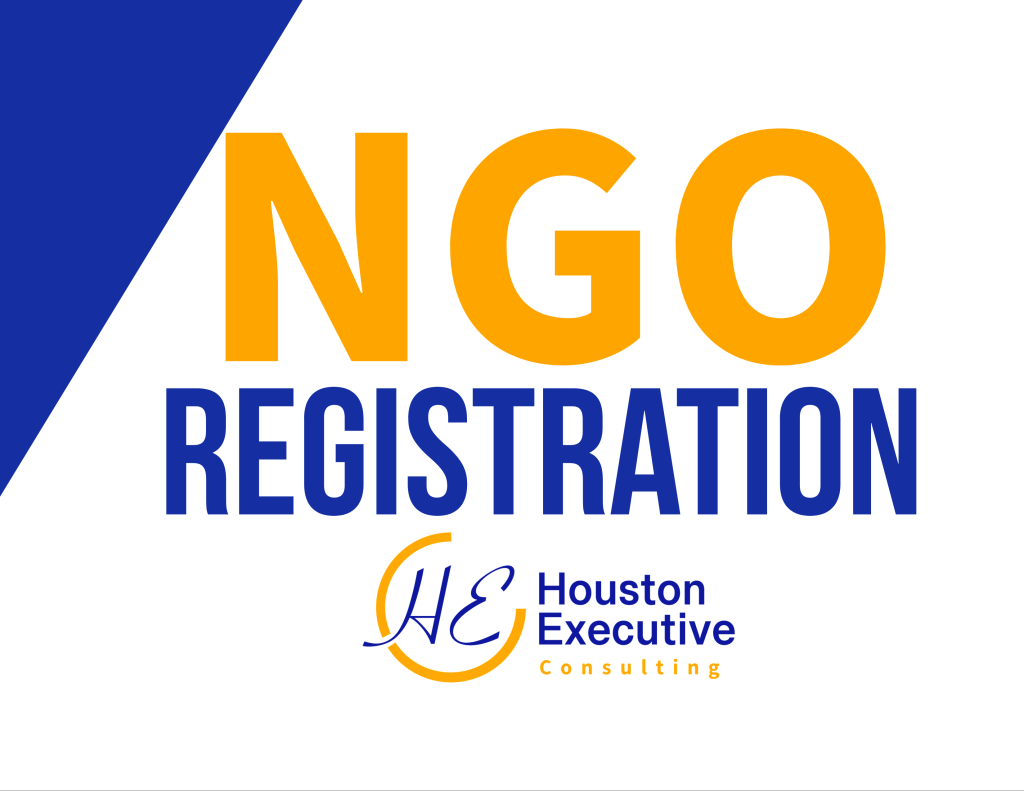How to Select and Appoint the Right Auditor & Certified Public Accountant (CPA) in Uganda – Audit Firms in Uganda
Scope —This article provides a detailed guide on selecting and appointing the right Uganda audit firm or Uganda CPA (Certified Public Accountant). It outlines the key steps in choosing an ICPAU-approved auditor in Uganda, focusing on factors like experience, qualifications, and industry reputation. The article also emphasizes compliance with regulatory standards, including financial auditing and compliance audits in Uganda. Additionally, it highlights the importance of hiring an audit firm in Kampala, offering insights on what to consider when appointing a CPA and the benefits of engaging a qualified audit firm for audit services in Uganda.
Example:
Isaac Newton & Partners Certified Public Accountants is one of Uganda’s leading audit firms, offering top-tier financial audit services. As an ICPAU-approved auditor (Practicing Number P0407) and Firm number AF0275, the firm is recognized for delivering exceptional compliance audits, ensuring businesses in Kampala and across Uganda meet all regulatory standards.
Whether you need an auditor in Uganda or seek guidance on the selection process, Isaac Newton & Partners is your trusted advisor. Specializing in corporate audits, they are a standout among Ugandan accounting firms known for their dedication to accuracy, integrity, and excellence. By choosing Isaac Newton & Partners, you ensure that your financial and compliance needs are met with the highest standards of professionalism and expertise.
The following is a guide on Selecting and Appointing the Right Auditor & Certified Public Accountant (CPA) in Uganda.
Do you need to appoint competent and ICPAU-approved auditors in Uganda? This comprehensive guide is designed to assist businesses in selecting the right CPA firm for their needs. It covers critical criteria such as experience, industry expertise, and ICPAU certification and provides expert tips for navigating the auditor appointment process in Uganda. With our in-depth guide, you can be confident in ensuring compliance, accuracy, and robust financial oversight.
Discover our expert guide to selecting auditors in Kampala, Uganda. It includes appointing credible, competent, approved, licensed auditors and certified public accountants (CPA Uganda).
This comprehensive guide covers essential criteria, key considerations, and expert tips for selecting and appointing the right certified public accountant in Uganda. Learn more about the CPA list at ICPAU (Institute of Certified Public Accountants of Uganda).
Who is a Certified Public Accountant?
A Certified Public Accountant (CPA) in Uganda is a highly skilled and licensed accounting professional who has met rigorous education, exam, and experience requirements. This designation signifies not just competence but a deep understanding of the financial landscape in Uganda, instilling confidence in their abilities and the value they bring to your organization.
In Uganda, CPAs are distinguished as highly skilled professionals who offer a wide range of services to the public. These include financial accounting, auditing, tax preparation, financial advisory, forensic accounting, and management accounting. Their comprehensive skill set, combined with their regulation by the Institute of Certified Public Accountants of Uganda (ICPAU), ensures clients a high level of service and peace of mind.
Unlike general accountants, CPAs in Uganda offer a comprehensive range of services to the public, including financial accounting, auditing, tax preparation, financial advisory, forensic accounting, and management accounting. Their broad skill set, coupled with their regulation by the Institute of Certified Public Accountants of Uganda (ICPAU), ensures a high level of service and reassurance for clients, covering all their financial needs.
What is an Audit Firm in Uganda?
A Uganda audit firm is a professional organization providing independent assurance services. These services examine and evaluate a company’s financial records, internal controls, and compliance with relevant laws and regulations. In Uganda, these firms offer various audit services, including economic, compliance, and internal audits, to ensure organizations meet accounting standards and regulatory requirements. Additionally, many accounting firms in Uganda provide tax, consulting, and financial advisory services.
To select or appoint an auditor in Uganda, it’s essential to consider their qualifications, experience, and certification by the Institute of Certified Public Accountants of Uganda (ICPAU), which regulates audit firms in Uganda. For businesses in Kampala and across Uganda, knowing how to choose an auditor is crucial for ensuring financial accuracy and compliance. Whether you need a CPA in Uganda or specific audit services, such as a compliance audit or hiring a qualified, ICPAU-approved auditor benefits organization.
What is The Institute of Certified Public Accountants of Uganda (ICPAU)?
The Institute of Certified Public Accountants of Uganda (ICPAU) is the primary regulatory body for CPAs in Uganda. Established in 1992, it plays a crucial role in setting and upholding accounting and auditing standards, licensing accounting firms, and issuing practicing certificates to qualified accountants. Its commitment to maintaining the highest ethical standards among its members and fostering professional development contributes to the enhancement of Uganda’s economic landscape through sound financial practices.
The ICPAU is committed to maintaining the highest ethical standards among its members, fostering professional development, and contributing to the enhancement of Uganda’s economic landscape through sound financial practices. This commitment should reassure you of the integrity and competence of Uganda’s CPAs, instilling confidence in your decision-making process.
They regularly publish lists of licensed accounting firms and practicing accountants. To obtain the most current list of audit firms in Uganda, I recommend visiting the ICPAU website: https://www.icpau.co.ug/
They often have a dedicated section where you can find this information. Alternatively, you can contact the ICPAU directly for the most accurate and up-to-date list.
How to Select and Appoint the Right Auditor & Certified Public Accountant in Uganda
Selecting the right auditor or Certified Public Accountant (CPA) in Uganda is a critical decision for any organization. The right auditor ensures compliance with regulatory requirements, provides insights into financial practices, and enhances the credibility of financial statements. Here’s an expert guide on how to make this crucial decision:
- Understand Your Needs
When selecting auditors in Uganda, it is crucial to understand your organization’s needs comprehensively. This involves assessing the audit scope, complexity of financial transactions, and adherence to industry-specific regulations, such as those mandated by the Bank of Uganda or Uganda Revenue Authority. A tailored approach based on these factors empowers you to choose the best professional.
- Adherence to Regulatory Standards
Ensure the auditing firm or CPA is licensed and approved by the Institute of Certified Public Accountants of Uganda (ICPAU). Verify their registration and credentials to confirm they are authorized to practice in Uganda. This scrutiny guarantees that the chosen auditor complies with regulatory standards and possesses a valid license issued by the ICPAU.
- Experience and Industry Expertise
Selecting auditors for businesses in Uganda requires focusing on industry-specific experience. An auditor well-versed in your sector brings invaluable insights, enabling a more accurate evaluation of your financial practices and a deeper understanding of unique industry risks and opportunities. This specialized knowledge is crucial for deriving maximum value from the audit process.
- Reputation and References
Conduct thorough research by making inquiries within your industry and consulting previous clients. Gathering firsthand accounts of the auditor’s performance and reliability is essential for making an informed decision that aligns with your business’s specific needs and regulatory compliance requirements in the Ugandan context.
- Technical Proficiency
Ideal candidates must comprehensively grasp Uganda’s unique accounting standards, tax regulations, and industry-specific compliance frameworks. Ensuring continuous professional development through relevant training and certifications guarantees the highest quality of audit services. Selecting the right external auditor or CPA in Uganda necessitates a rigorous evaluation of their technical proficiency.
- Independence and Objectivity
Auditor independence is paramount to ensure unbiased audit findings. Therefore, choosing an auditor with no conflicts of interest and a clear professional distance from the organization’s management is essential. This objectivity underpins the credibility and reliability of the audit report.
- Understanding the Auditor’s Approach and Methodology
Assessing the audit approach and methodology is critical to selecting an auditor in Uganda. A rigorous and systematic audit process is paramount for comprehensively evaluating financial statements. Prospective clients should delve into the firm’s audit plan, procedures, and the proposed audit timeline to ascertain their capacity to conduct a thorough and efficient examination aligned with Uganda’s regulatory and accounting standards.
- Communication and Reporting
Effective communication is paramount in selecting a competent external auditor or CPA in Uganda. A suitable auditor should maintain open and timely communication throughout the audit process, providing clear and regular updates. Careful evaluation of their reporting style is crucial for delivering comprehensive, understandable, and actionable audit reports aligned with the specific needs of Ugandan businesses.
- Fee Structure
The fee structure is crucial when evaluating potential external auditors or CPAs in Uganda. Obtain detailed quotations from various firms and compare their fee models. While cost is significant, it should not be the primary determinant. Instead, prioritize the quality of services, ensuring a proportional relationship between fees and the expected level of audit expertise and diligence.
- Value-Added Services
Beyond statutory compliance, consider auditors who offer value-added services like tax advisory, risk management, and business consulting. These services can enhance financial management and decision-making, providing a comprehensive approach to organizational growth and sustainability within the Ugandan business landscape.
Selecting the right auditor and Certified Public Accountant in Uganda requires careful consideration of various factors, including regulatory compliance, industry expertise, technical proficiency, and communication skills. By following this guide and focusing on the critical criteria, organizations can appoint reliable and competent auditors, ensuring robust financial oversight and enhanced credibility of financial statements.
What are the steps to Appoint the right auditor in Uganda?
Selecting the optimal auditor is a critical decision impacting financial transparency, regulatory compliance, and overall business health. This process requires meticulous planning and execution. Here’s a detailed breakdown of the steps involved:
- Define Audit Requirements and Objectives
- Clarify Audit Scope: Precisely outline the financial statements, internal controls, or specific areas requiring audit.
- Identify Key Stakeholders: Determine who will be involved in the selection process and their roles. If your organization has one, the audit committee plays a crucial role in the selection process. They are responsible for overseeing the audit and ensuring its independence and objectivity.
- Establish Evaluation Criteria: Develop clear benchmarks to assess potential auditors, such as industry expertise, audit methodology, fee structure, and reputation.
- Develop a Comprehensive Request for Proposals (RFP)
- Outline Organizational Profile: Provide a clear overview of the company, its industry, size, and financial structure.
- Detail Audit Scope and Objectives: Clearly articulate the specific audit requirements and desired outcomes.
- Specify Selection Criteria: Communicate the evaluation criteria to ensure proposals align with organizational needs.
- Establish Proposal Format: Define the submitted proposals’ structure and content expectations.
- Conduct a Rigorous Evaluation Process
- Establish Evaluation Team: Assemble a cross-functional team with diverse expertise to assess proposals comprehensively.
- Review Proposals Thoroughly: Analyze proposals against predefined criteria, focusing on the auditor’s understanding of the business, proposed methodology, and fee structure.
- Shortlist Candidates: Identify a select group of auditors demonstrating strong alignment with organizational requirements.
- Conduct Interviews and Presentations
- Develop Interview Guidelines: Create structured questions to assess candidates’ technical expertise, communication skills, and understanding of industry-specific challenges.
- Request Presentations: Invite shortlisted candidates to present their audit approach and how it aligns with the organization’s needs.
- Assess Cultural Fit: Evaluate if the auditor’s values and working style align with the organization’s culture.
- Perform Diligent Reference Checks
- Contact Provided References: Verify the auditor’s performance, reliability, and adherence to professional standards through client testimonials.
- Assess Quality Control Measures: Inquire about the auditor’s quality control procedures and any disciplinary actions.
- Make an Informed Decision
- Compare and Contrast Candidates: Weigh the strengths and weaknesses of each shortlisted auditor based on the evaluation criteria.
- Consider Long-Term Partnership: Evaluate the auditor’s potential to provide value beyond the audit, such as advisory services or risk management support.
- Obtain Management and Board Approval: Secure necessary approvals for the selected auditor based on the evaluation findings.
- Formalize the Appointment
- Execute Engagement Letter: Formalize the relationship by signing an engagement letter outlining the audit scope, responsibilities, fees, and terms.
- Onboard the Auditor: Facilitate a smooth transition by providing necessary access, information, and resources.
By diligently following these steps and considerations, you can guarantee the selection and appointment of a suitable auditor or CPA for your organization in Uganda. This will contribute to improved financial oversight and compliance.
What is The Role of an External Auditor in a Company, Government Agency, or Non-Governmental Organization in Uganda?
In Uganda’s financial and operational landscape, the role of an external auditor is pivotal for companies, government agencies, and non-governmental organizations (NGOs). An external auditor independently evaluates financial statements, compliance with laws and regulations, and internal controls.
We explore the comprehensive roles and responsibilities of external auditors within these entities in Uganda, emphasizing their importance in ensuring transparency, accountability, and financial integrity.
What is an External Auditor?
An external auditor is an independent professional who examines and verifies an organization’s financial records. Unlike internal auditors, who are employees of the organization, external auditors are third-party entities hired to provide an unbiased opinion on the organization’s economic health and operational compliance.
They play a critical role in maintaining the trust of stakeholders by ensuring the accuracy and reliability of financial reporting. An external auditor performs an audit, by specific laws or rules, of the financial statements of a company, government entity, other legal entity, or organization and is independent of the entity being audited.
The Importance of External Auditors
- Ensuring Financial Accuracy
External auditors are indispensable for verifying the accuracy of financial statements. They evaluate whether financial reports are free from material misstatements due to fraud or error. This assurance is essential for stakeholders, including investors, creditors, and regulatory bodies, who depend on these statements for informed decision-making. In Uganda, selecting competent auditors from approved audit firms is crucial to ensure financial accuracy and reliability. - Enhancing Credibility and Transparency
The involvement of external auditors enhances an organization’s credibility. Their independent assessments reassure stakeholders that the organization’s financial practices are transparent and reliable. This credibility is vital for securing investments, obtaining loans, and maintaining a positive public image. Appointing credible auditors in Uganda, such as those certified by ICPAU, ensures the organization’s financial integrity. - Compliance with Legal and Regulatory Requirements
External auditors ensure that organizations comply with Uganda’s relevant laws and regulations. They examine adherence to tax laws, labor laws, environmental regulations, and industry-specific requirements. This compliance is crucial to avoid legal penalties and maintain operational legitimacy. Hiring licensed auditors in Uganda helps organizations navigate and adhere to these legal frameworks effectively. - Identifying and Mitigating Risks
External auditors identify potential risks and weaknesses in an organization’s internal controls through audits. They provide recommendations to mitigate these risks, enhancing the organization’s overall risk management framework. Selecting the right CPA in Uganda is essential for robust risk management. - Promoting Good Governance
External auditors play a significant role in promoting good governance. By ensuring accurate financial reporting and compliance, they support establishing ethical practices and accountability within the organization. For Ugandan businesses, appointing ICPAU-certified auditors fosters good governance and ethical standards. - Role of External Auditors in Companies
In Ugandan companies, whether small or large, the role of external auditors is multifaceted. Here are the key areas where they contribute: - Financial Audits
The primary role of external auditors in companies is to conduct financial audits. They review financial statements to ensure they present an accurate and fair view of the company’s financial performance and position. This involves examining the company’s accounting records, transactions, and internal controls. Audit firms in Uganda offer specialized financial audit services to meet these needs. - Internal Control Evaluation
External auditors assess the effectiveness of a company’s internal controls. This includes evaluating the processes and procedures in place to prevent and detect fraud, ensure the accuracy of financial records, and promote operational efficiency. Selecting competent auditors in Uganda is critical for thorough internal control evaluations. - Compliance Audits
Compliance audits are another critical area. External auditors verify that the company adheres to statutory requirements, industry standards, and corporate policies. This includes compliance with tax regulations, employment laws, and environmental standards. Professional CPAs in Uganda ensure comprehensive compliance audits. - Risk Assessment and Management
External auditors help companies identify financial and operational risks. By evaluating the company’s risk management strategies, they provide insights and recommendations to improve risk mitigation efforts. Reliable auditors in Uganda contribute significantly to effective risk management. - Fraud Detection and Prevention
External auditors are trained to detect signs of fraud and irregularities. They scrutinize financial records and transactions to uncover fraudulent activities and recommend measures to strengthen anti-fraud controls. Certified Public Accountants (CPAs) in Uganda are proficient in fraud detection and prevention. - Role of External Auditors in Government Agencies
In government agencies, the role of external auditors is crucial for ensuring public accountability and the efficient use of public funds. Their responsibilities include: - Public Accountability
External auditors help maintain public trust by ensuring government agencies responsibly manage public funds. They audit financial statements to confirm that funds are used as intended and by budgetary allocations. Best audit firms in Uganda are essential for maintaining public accountability in government agencies. - Compliance with Laws and Regulations
Government agencies must comply with various laws and regulations. External auditors assess adherence to these legal requirements, including procurement laws, financial regulations, and sector-specific guidelines. Hiring approved auditors in Uganda ensures adherence to these legal standards. - Performance Audits
Performance audits evaluate the efficiency and effectiveness of government programs and services. External auditors assess whether government agencies achieve their objectives and deliver services efficiently. Tips for hiring auditors in Uganda include seeking those experienced in performance audits. - Detecting and Preventing Corruption
Corruption is a significant concern in the public sector. External auditors play a vital role in detecting and preventing corruption by scrutinizing financial records and transactions for irregularities and fraudulent activities. Selecting the right auditor in Uganda is crucial for combating corruption. - Enhancing Transparency and Accountability
External auditors enhance transparency by providing independent assessments of government operations. Their reports are often made public, ensuring that government activities are transparent and accountable to citizens. Reliable auditors in Uganda are crucial to fostering transparency in government operations.
Role of External Auditors in Non-Governmental Organizations (NGOs)
For NGOs, the role of external auditors is vital in ensuring accountability to donors, beneficiaries, and regulatory bodies. Their responsibilities include:
- Financial Accountability
NGOs rely on donor funding and must demonstrate that funds are used appropriately. External auditors verify that financial statements accurately reflect the NGO’s economic activities and that funds are used for their intended purposes. ICPAU-certified auditors ensure financial accountability in NGOs. - Compliance with Donor Requirements
Donors often impose specific requirements and conditions on the use of funds. External auditors ensure NGOs comply with these requirements, including reporting standards and spending guidelines. Selecting auditors for businesses in Uganda, particularly NGOs, requires attention to donor compliance expertise. - Evaluating Internal Controls
External auditors assess the effectiveness of an NGO’s internal controls. This includes evaluating financial management practices, procurement procedures, and grant management processes. Finding licensed auditors in Uganda ensures robust internal control evaluations. - Risk Management
NGOs operate in dynamic environments and face various risks. External auditors help identify these risks and recommend enhancing risk management strategies. Expert tips for selecting auditors in Uganda include focusing on their risk management capabilities. - Building Donor Confidence
External auditors build donor confidence by providing independent verification of financial statements. This assurance is crucial for securing future funding and maintaining positive donor relationships. Appointing credible auditors in Uganda is essential for building and maintaining donor confidence.
The Audit Process
The audit process conducted by external auditors generally involves several key steps:
- Planning and Risk Assessment
External auditors begin by planning the audit and assessing the risks associated with the organization’s financial statements. This involves understanding the organization’s operations, industry, and internal controls. Critical considerations for auditors in Uganda include thorough planning and risk assessment. - Fieldwork and Evidence Gathering
During fieldwork, auditors gather evidence to support their assessments. This includes reviewing financial records, interviewing personnel, and testing internal controls. Guide to choosing auditors in Uganda emphasizes the importance of rigorous evidence gathering. - Reporting
After completing fieldwork, external auditors prepare an audit report. This report includes their opinion on the financial statements, any identified issues, and recommendations for improvement. Selecting auditors for businesses in Uganda should prioritize those with solid reporting capabilities. - Follow-up
External auditors may conduct follow-up audits to ensure that the organization has addressed the recommendations and resolved any identified issues. The auditor appointment process in Uganda should include provisions for follow-up audits to ensure continuous improvement.
Final Remarks
Selecting competent auditors in Uganda requires a comprehensive approach. First, ensure the audit firm is an ICPAU-approved auditor in Uganda with certified CPAs. Select an auditor in Uganda with experience relevant to your industry for the best results. Prioritize accounting firms in Uganda with a strong reputation and offer various services, including financial, compliance, and operational audits. Appointing an auditor in Uganda typically includes requesting proposals, evaluating bids, and conducting interviews. Formalize the selection with a board resolution and engagement letter.
To hire an auditor in Uganda, consult the ICPAU directory and focus on firms with expertise tailored to your business needs. The role of an external auditor is indispensable for businesses, government agencies, and non-governmental organizations in Kampala and across Uganda. By conducting financial audits and compliance reviews, auditors ensure accuracy, transparency, and risk management, which fosters trust among stakeholders and contributes to the integrity of Uganda’s economic landscape.
Whether considering a financial audit in Uganda or wondering how to choose an auditor, focusing on reputable audit services in Uganda will benefit your organization. For more insights, consider the cost of audit services in Uganda and the long-term benefits of hiring a qualified audit firm in Kampala.
Useful Information
What is the Requirement to Furnish Audited Financial Statements by the Uganda Revenue Authority (URA)?
This is a new income tax return compliance change effective 1st September 2024.
Under Section 16(5) of the Tax Procedures Code Act, all persons with an annual turnover of UGX 500,000,000 or more are required to furnish their tax returns with audited financial statements prepared by a registered member of the Institute of Certified Public Accountants of Uganda (ICPAU).
Effective September 01, 2024, this requirement applies to both original and amended income tax returns for the following categories:
- Final Income Tax Returns for Non-Individuals
- Final Income Tax Returns for Individuals
- Final Income Tax Returns for Partnerships
Therefore, all taxpayers preparing to submit their final Income Tax Returns for the year of income that ended June 30, 2024 (due by December 31, 2024) are expected to comply with this requirement.
More Useful Links
Annual Returns Filing Service with URSB and URA Tax Returns in Uganda
How to Write a Business Plan in 10 Easy Steps – A Comprehensive Guide
Need an External Auditor & Certified Public Accountant in Uganda? Houston Executive Consulting offers credible partnerships. Appoint the right expert today! Call/WhatsApp +256782825945












